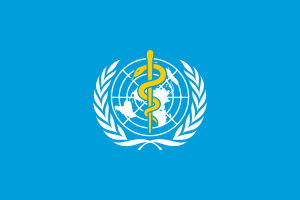 Image via Wikipedia
Image via WikipediaThis thought came to me as I kept on pondering how come this issue of biopiracy has not really captured the imagination of the general public, unlike climate change, unless they were the victims of these acts or they know people or indigenous communities whose biological resources, or cell lines or blood samples, or traditional knowledge, were taken from them and commercialized.
This is a sorry state of affairs as this year, 2009, the Convention on Biological Diversity, the international instrument which is the source of our country's obligations to conserve biodiversity, will organize expert meetings and negotiating meetings in order to come up with an international treaty to regulate biopiracy. In fact, the meeting already started last year, in December, in Namibia, where experts were gathered to identify concepts and sectoral approaches that will help regulate biopiracy.
One of the contentious issues there which developed countries took pains to avoid discussing is the issue of derivatives. In this modern era of high-technology, biotechnology and advanced information technology, most of the biological resources that were taken from developing countries have now been developed into other products, or derivatives, which may even have scant resemblance from the original biological material taken.
Once developing countries establish their rights to a share in benefits arising from these derivatives, then perhaps a lot of money or technology may go their way, as the Convention on Biological Diversity mandates a fair and equitable sharing of benefits from these resources.
One concrete example of this is the virus from bird flu strains, like, in an actual example, in Indonesia, taken from chickens infected with bird flu. These virus strains from the chickens are sent to an international network of research centers which isolate them and eventually develop vaccines from them, to protect humans against bird flu.
Indonesia has been fighting a difficult fight in the World Health Organization to assert its right to benefit-sharing from these resources. But these international research centers and their allied pharmaceutical companies have patented these strains, including the vaccines developed from them, and Indonesia' benefit lies in having available these vaccines to protect it against bird flu.
The centerpiece of the debate on biopiracy lies in the patenting of biological resources, should it be allowed even or what? Those who are against it argue it is against the basic principles of patent law, where things naturally occurring in nature should not be patented, but proponents say that these microorganisms have already been manipulated by humans, thus they can already be patented.
In this discussion, I'm not sure if the layperson even had an inkling what patents mean, and what is their significance when they are applied on living materials.
Perhaps the advocates of biopiracy should go back to their drawing boards, and try to make the issue relevant to the ordinary person, such that debates on this issue will not only happen among NGO advocates, government officials and companies who are doing the patenting. The public has to weigh in, if they can be made to understand the issue.
oOo





No comments:
Post a Comment